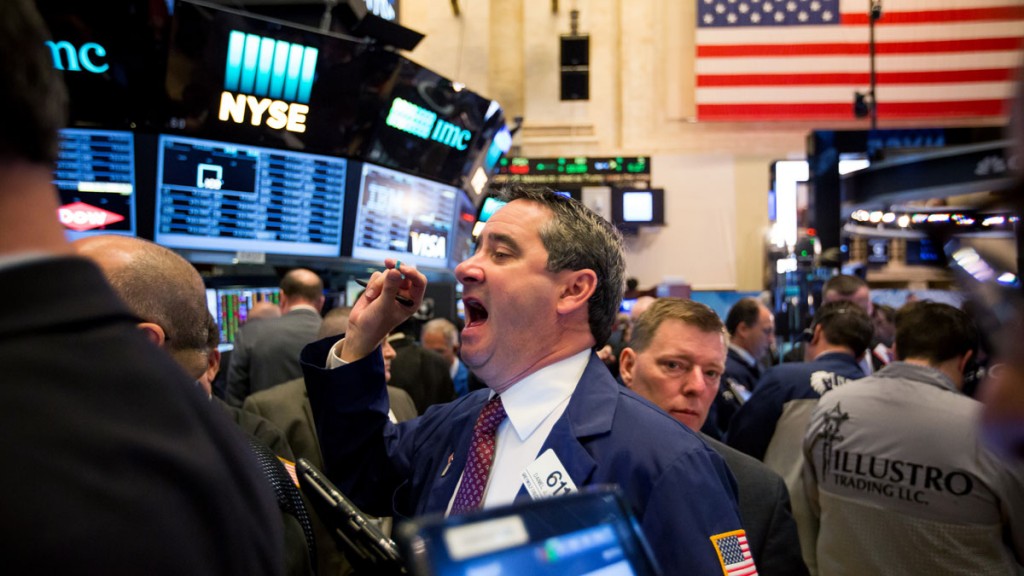
Yesterday, the big shock of the day was Donald Trump winning.
Today, the big shock is that the market seems to be pretty comfortable – maybe even happy – about it all.
No one really has any idea of what Trump has planned yet. And as more comes out over the coming weeks and months, I’ll be discussing it in a lot more detail. For now the papers are full of conjecture, hand-wringing, and knee-jerk contrarianism.
But I just want to take this morning to highlight a practical point about the dangers of paying too much attention to markets…
A painful wake-up call from the market
I woke up yesterday morning at around 5am. That wasn’t planned – it’s bad enough getting up in the cold and the dark without getting up an hour early on top of that – but my internal alarm clock had clearly guessed it was going to be a busy day.
I flicked on my phone to look at what the markets were doing. Again, I don’t normally do that, but I knew it was the fastest way to find out the US election result. It was a full-blown repeat of Brexit.
Gold was soaring – up $60 an ounce to more than $1,330 at one point. The US dollar had tumbled in value against the Japanese yen (the yen is a classic safe haven currency for reasons that people struggle to explain).
Stockmarkets were cratering. According to the futures market (which gives you an idea of what will happen when a stock exchange actually opens for business), the Dow Jones was going to shed something in the region of 800 points when it opened.
In short, to use a hyperbolic technical term, it was carnage.
Let’s share this teachable moment
Rather than rabbit on about the reasons for the market’s horror, or its subsequent change of heart, I’d like to take this opportunity for us all to learn something practical that might be of actual use in our investing.
What is it our American cousins say? This is a “teachable moment” (it might even be a “teachable moment, bigly”).
OK – so if you’d had your portfolio open right at that moment in time, and you’d seen what was going on, what do you think your reaction would have been?
You’re all different. So you’ll all have different answers.
Some of you would have sold in horror, not willing to stomach any further losses. Some of you would have piled in, seeing a massive buying opportunity.
And a lot of you would have done nothing (sensible), but equally, you’d have spent much of the rest of the morning fretting that you should have done something. You’d have been sitting on your train to work, gnawing away at the thought: “I should have sold. I wonder how much farther the market’s fallen?”, rather than reading a book or planning your day.
Now, as it stands, the really quite incredible thing about yesterday’s market action is that by the end of the day, gold was back to where it started, the US stockmarket was up, and we had – once again – seen investors pivot from “everything is awful” to “everything is awesome” in the space of less than a day.
How to control your emotions when investing
But let’s be clear about the lesson here. Regardless of what you actually did, and whether you made any money or not (locking in some profit on gold, or piling into stocks would have done that), the mistake was already made.
The error would have lain in looking at your portfolio at that time of the morning following a volatile event like a heavily-contested US election.
You see, unless you’re a trader, then your portfolio is not there to be tweaked and tinkered with on the basis of uncontrollable news events. And that means that you should tightly control your monitoring of it.
Money – both the losing of it and the making of it – plays havoc with your emotions. Life is tricky enough without having portfolio swings affect your daily moods too.
So make sure you don’t check your portfolio too often. I’m not saying for a moment that you should ignore it. And when you do look at it, give it some proper thought – are your reasons for owning the assets in your portfolio still valid?
But you have to keep control of it. Set aside a regular time – maybe once a month, maybe quarterly, doesn’t matter much as long as it’s regular – to review it properly. Make sure you have some peace and quiet, so you’re not distracted. And do it at the weekend, when markets are closed, so it’s harder to do something impulsive and stupid. (I’m talking from experience here.)
You lot are perhaps more sensible and less impulsive than I am. But I reckon that more than a few of you know what I’m talking about.
Anyway – here endeth the lesson.
We’ll have a lot more on Trump’s victory in the next issue of MoneyWeek magazine, out tomorrow. If you’re not already a subscriber, sign up now.